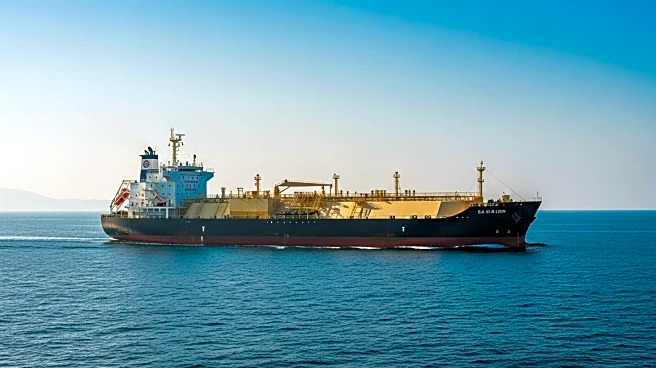What's Happening?
An LPG carrier was struck during an Israeli military operation targeting Houthi-controlled ports in Yemen, as confirmed by Pakistani Interior Minister Mohsin Naqvi. The incident occurred on September 17 when an Israeli drone hit the vessel at Ras Isa, causing an explosion in one of the ship's LPG tanks. Following the attack, Houthi forces boarded the ship and took the crew hostage. The crew, consisting of 24 Pakistanis, two Sri Lankans, and one Nepali national, faced dire conditions with limited food and water. After diplomatic efforts involving the Pakistani ambassador to Oman, Saudi Arabian authorities, and Pakistani security agencies, the crew was released and safely evacuated from Houthi territory.
Why It's Important?
The release of the crew highlights the complex geopolitical tensions in the region, involving multiple nations and non-state actors. The incident underscores the risks faced by maritime operations in conflict zones, particularly in the Red Sea area. The involvement of Israeli military forces and the subsequent hostage situation could exacerbate regional tensions, affecting international shipping routes and security. The successful diplomatic intervention by Pakistan and Saudi Arabia demonstrates the importance of international cooperation in resolving such crises, potentially influencing future diplomatic strategies in similar situations.
What's Next?
The aftermath of the attack may lead to increased security measures for vessels operating in the Red Sea and surrounding areas. Nations involved in maritime trade may reassess their strategies to ensure the safety of their crews and ships. Additionally, the incident could prompt further military actions or diplomatic negotiations aimed at stabilizing the region. The ongoing conflict between the Houthis and other regional powers remains a critical issue, with potential implications for future peace talks and international relations.
Beyond the Headlines
The attack and subsequent hostage situation raise ethical concerns about the use of military force in civilian areas and the protection of non-combatants. The incident may lead to discussions on international maritime law and the responsibilities of nations in safeguarding civilian vessels during military operations. Long-term, this event could influence global maritime policies and the development of new protocols to prevent similar occurrences.









